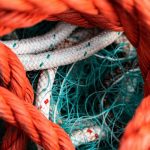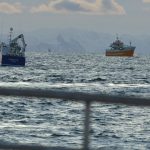European Commissioner for Maritime Affairs and Fisheries Joe Borg commented: “Sharks are very vulnerable to overexploitation and the consequences of depleting their numbers may have very serious consequences not only for sharks but also for marine ecosystems and for fishermen themselves. That is why we have set out a plan of action today which will both establish a more precautionary approach to managing fisheries where sharks are caught, and support the substantial research still needed to understand fully the role sharks play in the life of our oceans and the impact which fishing may have on them.”
The Action Plan includes measures to improve data collection and scientific advice, strengthen management and technical measures, and to further reinforce control of the shark finning ban, which came into force in EU waters, and for all EU vessels wherever they fish, in 2003. It includes measures to be implemented at both EU and Member State level and proposes that the EU seek their endorsement by all relevant Regional Fisheries Management Organisations (RFMOs). A full list of the measures proposed can be found in the link below.
The Plan covers all cartilaginous fish – not only sharks, but also skates, rays and chimaeras, which make up over 1,000 species in total. They are found throughout the world, and particularly in the Northern Atlantic Ocean, where more than 50% of shark catches by EU vessels are made. Shark fisheries have grown rapidly since the mid-1980s, driven by an increased demand for shark products (fins in particular). But these species are especially vulnerable to overfishing, since they are long-lived, slow to reach sexual maturity, have long gestation periods and a low fertility rate. A recent study by the International Union for the Conservation of Nature suggests that as many as one-third of the shark species caught in EU waters are currently threatened by excessive fishing pressure. Despite the fragility of these stocks, and their growing importance to the EU fleet, EU shark fisheries have never been managed systematically. In recent years, the Commission has recognised the worrying condition of a number of shark stocks and proposed either zero catches, or substantial reductions in fishing mortality, both within the EU, and in several RFMOs.
The EU Action Plan for sharks is based on extensive consultations with Member States, stakeholders and the public during 2007 and 2008. The Plan is structured along the lines proposed by the FAO’s International Plan of Action for sharks, adopted in 1999








